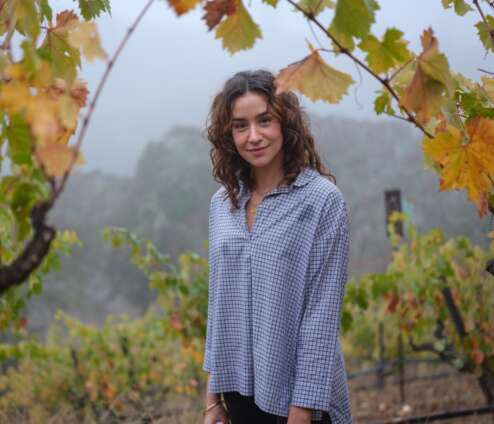5 Questions with Isabel Gassier
May 29, 2023
5 Questions with Isabel Gassier of...
Domaine Gassier
Costières de Nîmes, France

Domaine Gassier is a Wine Presenter for Hospice du Rhône Blackberry Farm 2023, an annual event now in its thirteenth year, celebrating Rhône variety producers along with incredible culinary and musical talent.
Domaine Gassier will be joined by Wine Presenters, Julia and Nikolas Krankl of Fingers Crossed; Guest Chef, Tyler Florence of Wayfare Tavern, Miller & Lux and Food Network; and Musical Guest, Tenille Townes.

You are a fifth generation vigneronne, but your father, Michel Gassier mentioned it is perhaps your two ‘Uncle Phils’ who have taught you the most, can you tell us about these mentors?
I wouldn’t be where I am today if it weren’t for my 'Uncle Phils' [the late French oenologist and consultant, Philippe Cambie; and American viticulturist, Phil Coturri]. I’ve been so inspired by their instinctive approach, natural talent, adventurous spirit, generosity and willingness to share their knowledge with all who are curious to hear.
Kindred spirits, it’s no surprise they became such fast friends. I feel very blessed they gave me a chance and supported me all these years.
At seventeen, you were already working in wine and went on to study viticulture and enology at Ecole d’Ingénieurs de Changins in Switzerland, did you always know winemaking was your path?
I didn’t. I had always wanted to become a medical doctor.
But as of thirteen, I started working at the wine shop, then wine fairs and the cellar during harvest and by the time I had to make up my mind about what career to pursue (in France we decide junior year of high school), I had developed a real interest in winemaking.
I also really got into surfing and found out you could travel around the world working harvest for half of the year and go surfing for the rest. At sixteen it sounded like a fun way to live my twenties.
What drew you to work in California?
I had always dreamt of living there at some point: it sounded like (and is) a magical place.
But when I first moved to Sonoma, I was only planning on staying for my 6-month viticulture internship with Bedrock Wine Co. The goal was to then do the “traveling winemaker” thing and hop from the Northern to the Southern hemisphere every six months.
In those first few months, I made great friends, fell in love with Californian vineyards and I met Phil Coturri, who I was incredibly eager to learn from. Stars aligned, he offered me a job and I immediately said yes.
You have been a literal and figurative translator between the Old and New Worlds of wine. What do you like about this role?
I’m still just realizing the profound impact this translator role has had and continues to have on me. I think what I love the most about this position is the vantage point it’s given me.
To me, the New World’s perspective embodies a spirit of boundless creativity, endless possibilities and unbridled enthusiasm. It is an environment that brims with excitement and inspiration, where curiosity and boldness are embraced and celebrated.
On the other hand, we find the Old World perspective—a realm where Domaines have surpassed the lifetimes of countless winemakers. Centuries of winemaking wisdom have taught us to embrace the singularity of each vintage and to view capturing the essence of a place as the pinnacle of our craft.
Finding myself at the intersection of these two worlds allowed me to witness how harmoniously they complement one another. This may sound cheesy, but in my view, the Old World imparts its wisdom and focus to the New, grounding its exuberant energy. And in return, the New World offers the Old a vibrant impulse to continuously learn, experiment and find joy in the art of winemaking.
What have you been doing to implement regenerative agriculture in Costières de Nîmes?
My first focus was to generalize cover cropping to all of our vineyards. We’ve also identified blocks that can be non-tilled and invested in a roller crimper and a drill seeder. We are exploring reduced till options for blocks that need a slower, smoother transition to no till.
This year, we have started making our own compost on a large scale. We’ll be using our own grape pumice and have partnered with local farmers to get manure, tree cuttings, fruit waste etc.
Finally, we are rethinking the way we plant our vineyards: new plantings are done with higher vigor rootstock, at a lower density, and in smaller blocks that integrate diversified crops (olive and fruit trees), hedgerows and/or wooded corridors.
« Back to News
